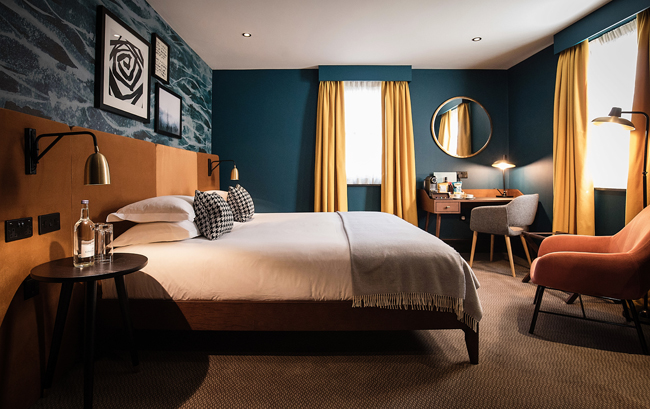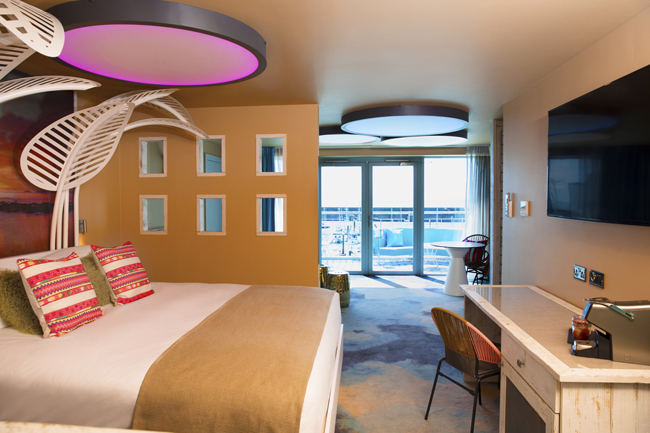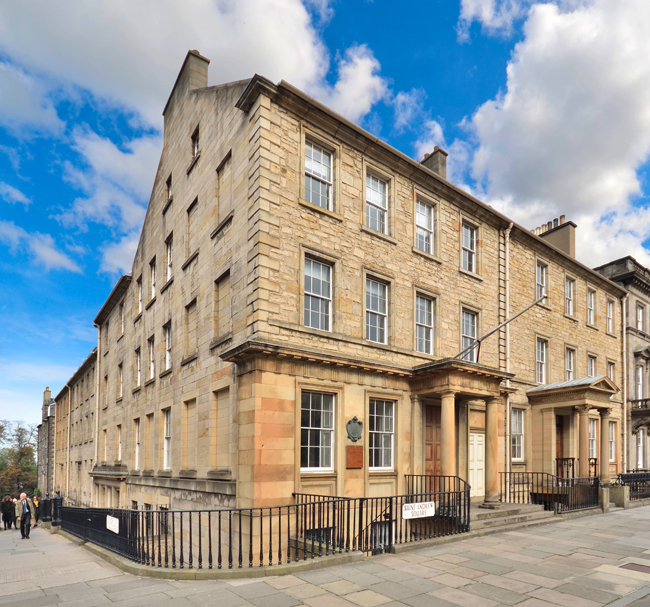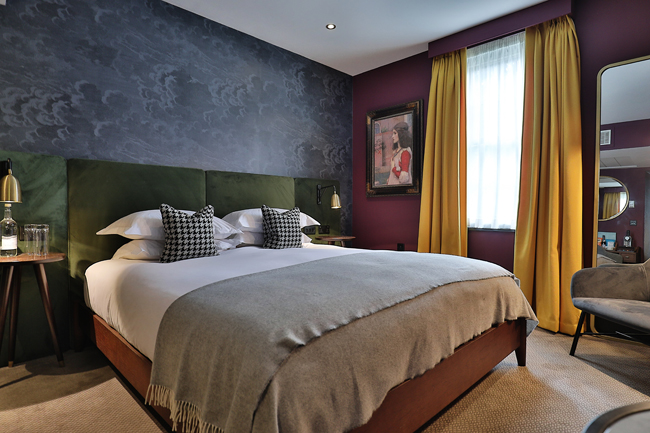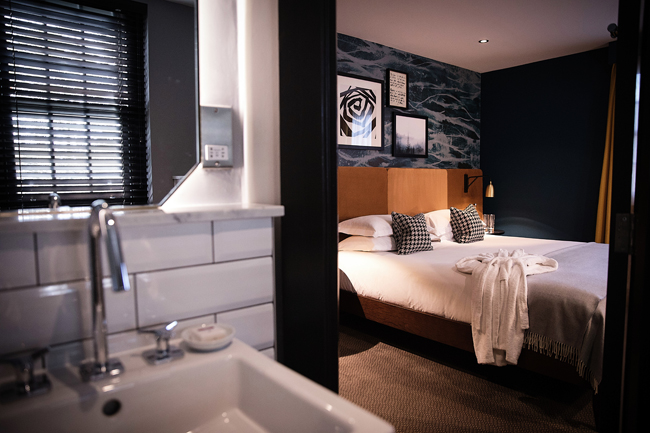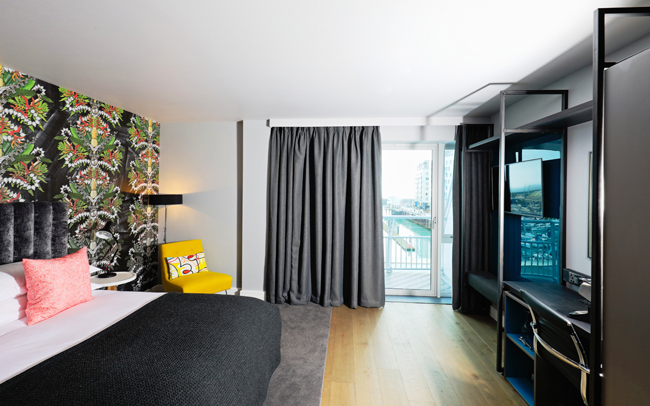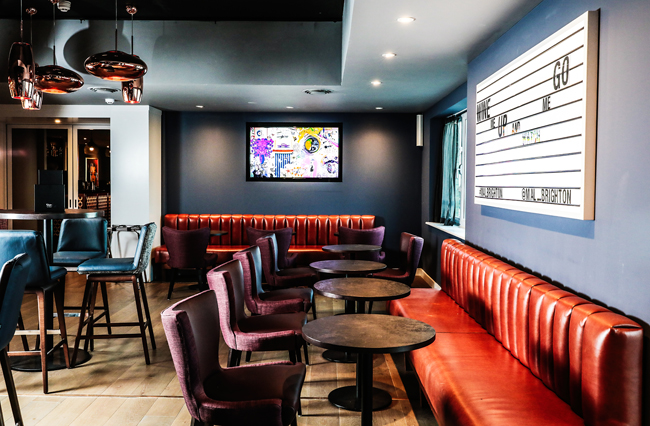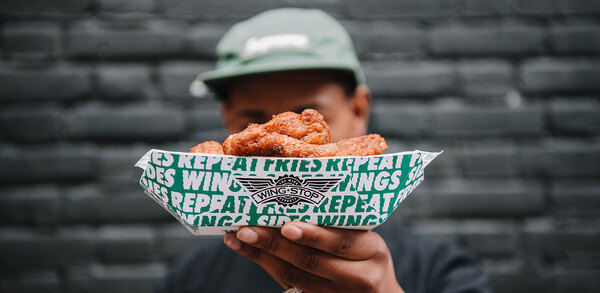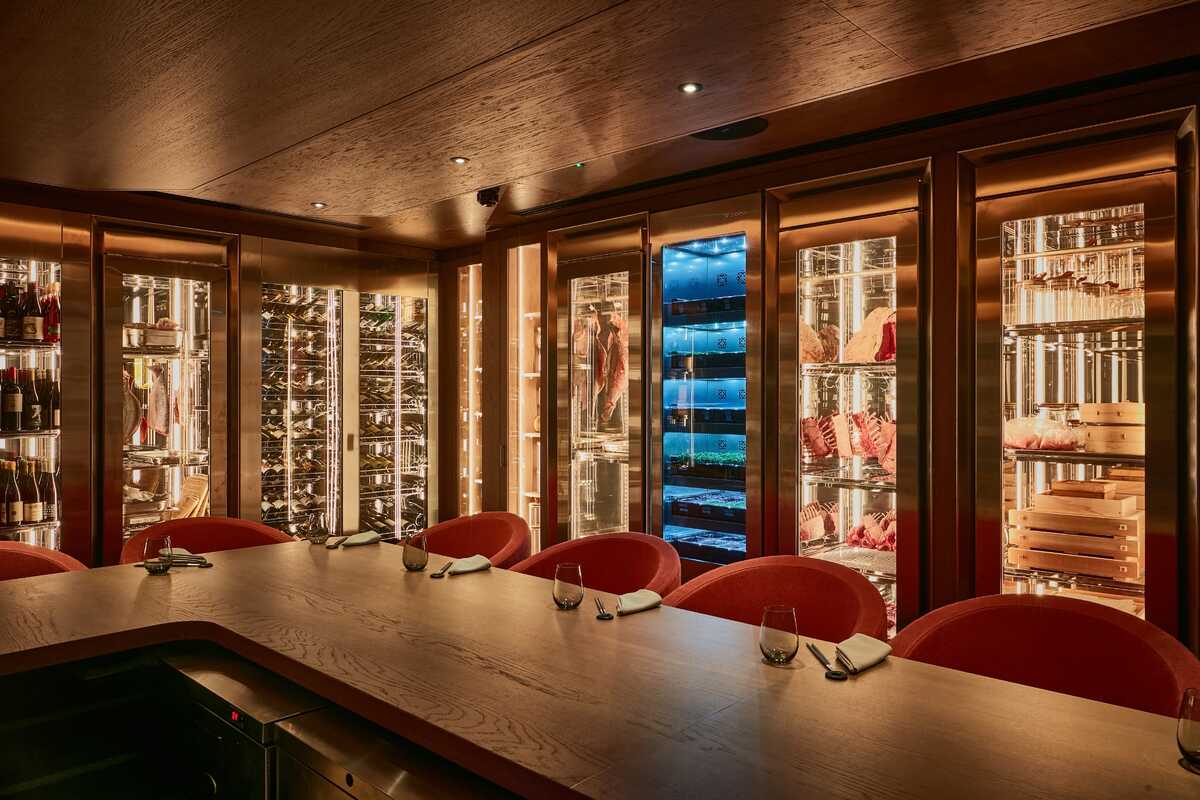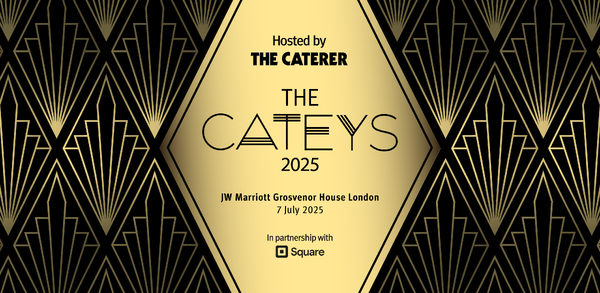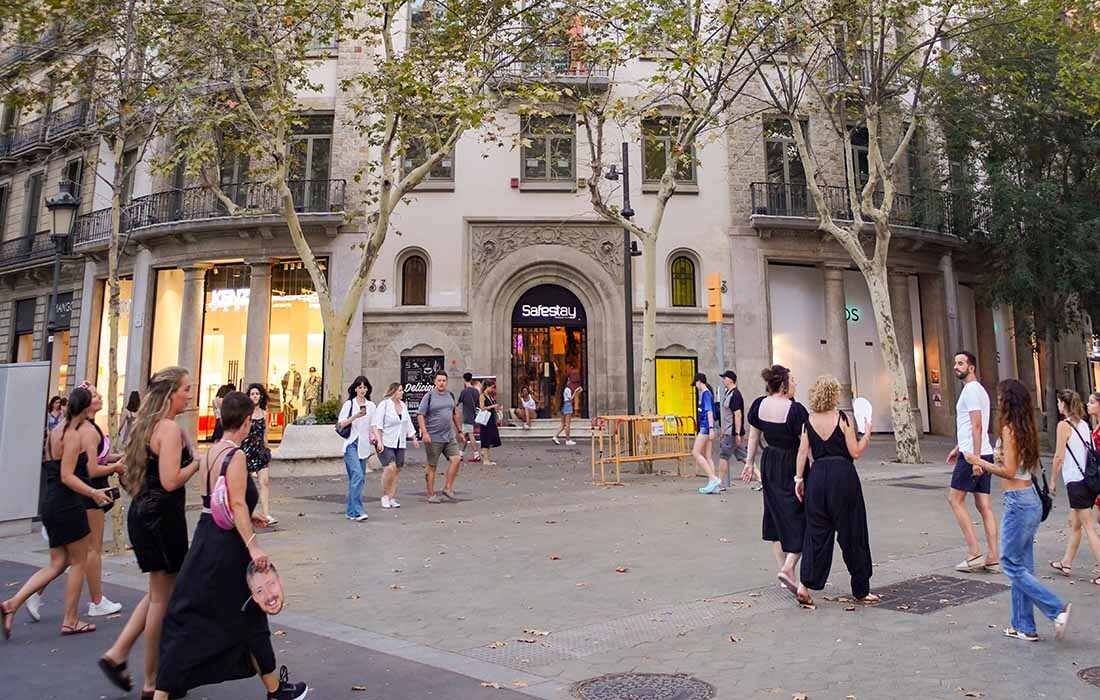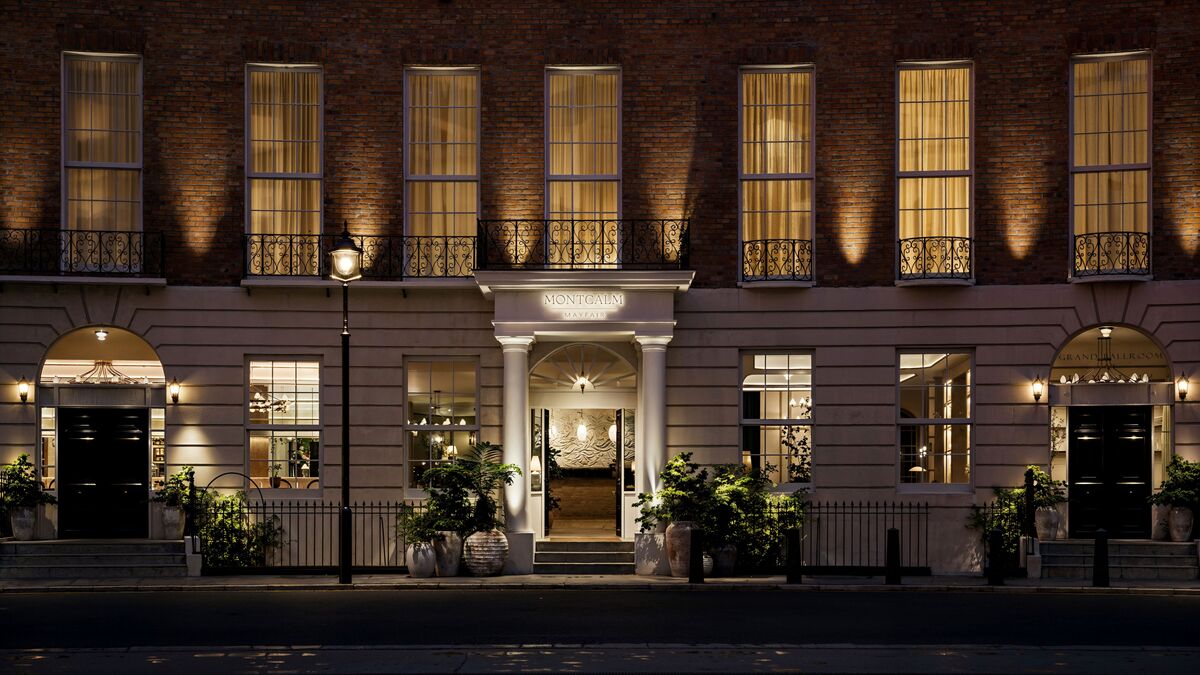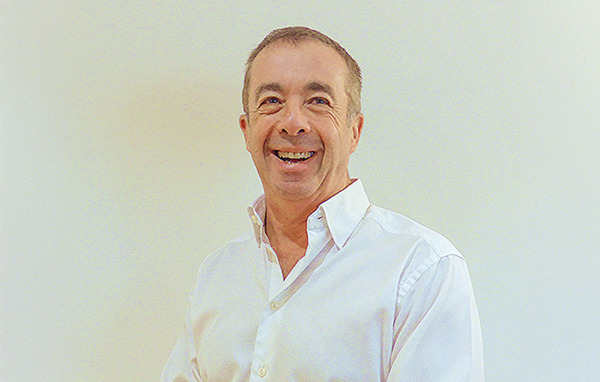The Caterer Interview: Guus Bakker
In addition to being chief executive of Frasers Hospitality EMEA, Guus Bakker took on responsibility for Malmaison and Hotel du Vin last year. He tells Janet Harmer how there is room for growth across all three businesses
What is your role across the three brands for which you are responsible?
I look after the strategic side of the businesses, supported by two brand chief operating officers: Rebecca Hollants Van Loocke at Frasers and Scott Harper at Malmaison and Hotel du Vin.
Why did you decide not to replace Paul Roberts following his departure last year and who is now chief executive of Village Hotel Club?
I had been overlooking Malmaison and Hotel du Vin (MHdV) since Frasers Hospitality UK bought the businesses in 2015 (from US-based private equity company KSL for £363.4m), so it was logical to go into the role rather than recruit someone new. It seemed to be the most natural move for the company.
Nick Halliday, former chief operating officer of Hotel du Vin, left the business suddenly in April. What happened?
Nick Halliday resigned to pursue new ventures. We wish Nick all the success for the future.
Does the fact that Paul Roberts and Nick Halliday have not been replaced indicate that the company is focused on a cost-cutting exercise?
No. On the contrary, there is continued and substantial reinvestment into both brands. We are currently committed to developing a new Malmaison in York, Edinburgh and Bournemouth, which will bring us up to 18 Malmaison hotels by late 2019. We have just opened a new Hotel du Vin in Stratford-upon-Avon and we're set to relaunch the iconic Avon Gorge as a Hotel du Vin later this year, bringing the total number of Hotel du Vin hotels to 19.
We have a mix of serviced apartments and hotels across the group. Frasers Suites are located in Edinburgh, Glasgow and London in Kensington and Queen's Gate. There are five Frasers Residence properties in London, in Bishopsgate, Blackfriars, the City, Monument and Price of Wales Terrace. Frasers also owns the Park International hotel and Ibis styles Cromwell, both in London. Across Frasers, Malmaison and Hotel du Vin, I am responsible for 65 properties, including a number in the pipeline. Frasers Hospitality will continue to explore opportunities in the UK for all its brands, in particular Fraser Suites, Capri by Fraser and obviously Malmaison and Hotel du Vin.
What are the plans for opening more Malmaison and Hotel du Vin properties?
There are still a number of UK cities and town where we are not represented. We would love to be in Bath and open more in London. Cardiff and Dublin are also at the top of our list and we are looking along the south coast at Portsmouth, Southampton and Torquay. For Malmaison we need properties with around 100 bedrooms, while Hotel du Vin has an average of 54 rooms.
Avon Gorge by Hotel du Vin is slightly different from most of our hotels. [The 75-bedroom property in Clifton, overlooking the Clifton Bridge, was previously the Avon Gorge hotel and was one of four properties acquired by Frasers Hospitality from Swire Properties Hotels Holdings in a £36.1m deal in December 2015.] The hotel is in a landmark location with a vast roof terrace the size of a football pitch overlooking the gorge. It is a great space for food and beverage on a summer's day. We have added an events space in the basement. And we have plans to reinstate a listed monument next to the property to its former glory.
It used to be a ballroom and was once a popular location for Bristol weddings.
It was suggested at the time of the acquisition of Hotel du Vin and Malmaison by Frasers Hospitality UK that there were plans to expand the two brands overseas. Is this still on the cards?
It is definitely a key part of our strategy. We would like to move into continental Europe and are looking at individual properties and portfolios. We have already looked at some buildings, but have not been successful in the bidding. We believe both brands would operate well in Germany and the Benelux countries. We are also interested in expanding further afield. The head office of Frasers is in Singapore, so I can see something happening there one day.
We have also introduced a new flexible meetings and events concept to Malmasion with the launch of Work + Play, which so far is in Manchester, Birmingham, Leeds and Brighton. This is a world away from the traditional meetings offer. It includes large spaces, small pods for four people and break-out areas with low and high tables. It is a more communal, more vibrant place to interact.
There has also been an ongoing investment and refurbishment programme across both brandsâ bedrooms and public spaces.
What are the key brand elements that distinguish Malmaison and Hotel du Vin today?
While there are similarities between the brands â" both share a love of excellent food and drink, outstanding design and style, and stand-out customer service â" there is also a clear distinction between the two. Hotel du Vin is an elegant collection of townhouse and city centre properties where each resonates with the character of the historic building in which they are housed. Wine is, of course, central to every hotel, as is evident with their substantial wine lists â" which are chosen by each hotelâs sommelier. We have reviewed all the menus in Hotel du Vin and taken a step back as we move into the future, going back to the original French bistro concept. Over the years, the restaurants had become more pan-European. We spoke to the clientele and they told us that they preferred the traditional French offer, which differentiates us from high street brands. We are also investing in the training of staff in order to upscale theservice and product knowledge.
Malmaison are chic, city-centre hotels with great style, food and value. It maintains its cheeky, challenger voice and continues to innovate, with concepts such as Work + Play, daring artwork and bold suites. The hotels tend to be bigger than Hotel du Vin, and have a vibrant bar and Chez Mal brasserie.
Absolutely, both brands have undoubtedly stayed true to their DNA. When they first launched over 20 years ago, both Malmaison [created by Ken McCulloch] and Hotel du Vin [created by Robin Hutson and Gerard Basset] set out to challenge the conventional hospitality model with a fantastic food, drink and design-led offer. That approach, from the focus on food and drink to the attention to the smallest of details is as central to the brands and their success now as it was then.
How has the design of Malmaison and Hotel du Vin evolved since Frasers acquired the properties?
There are some design elements that will always be a key part of the brands â" the luxurious roll-top baths in Hotel du Vin, the daring artwork in Malmaison, for example â" but the overall style is always evolving and weâre incredibly proud of some of the touches weâve bought in recently. The artwork in Stratford-upon-Avon is all bespoke, and gives a nod to the townâs famous history.
We have a well-supported, dedicated design team internally, who work with a number of high-profile designers.
With an expanding portfolio, how is Malmaison and Hotel du Vin facing the staffing challenge as we head towards Brexit and beyond?
There is great uncertainty, which is resulting in fewer Europeans coming to Britain. This has had a definite impact at the same time as increased staffing costs as the result of the National Living Wage and rising food prices. With a tight management in place, it is something on which we are working. We are looking at increasing our training programmes and in particular want to expand our chefsâ academy into other departments, such as the front office and front of house. It is vital to offer training opportunities to encourage a new talent.
Fighting for the same business alongside the competition. But as a group, I think we are well placed. We have to keep focused on the quality. There are a lot of other businesses out there, which have had an impact on our margins.
The investment we have continually made in the brands means that we can confidently charge a premium rate. For Hotel du Vin this means that we can add 50% to the rate in some locations, while Malmaison we are able to charge an additional 20%-25%.



